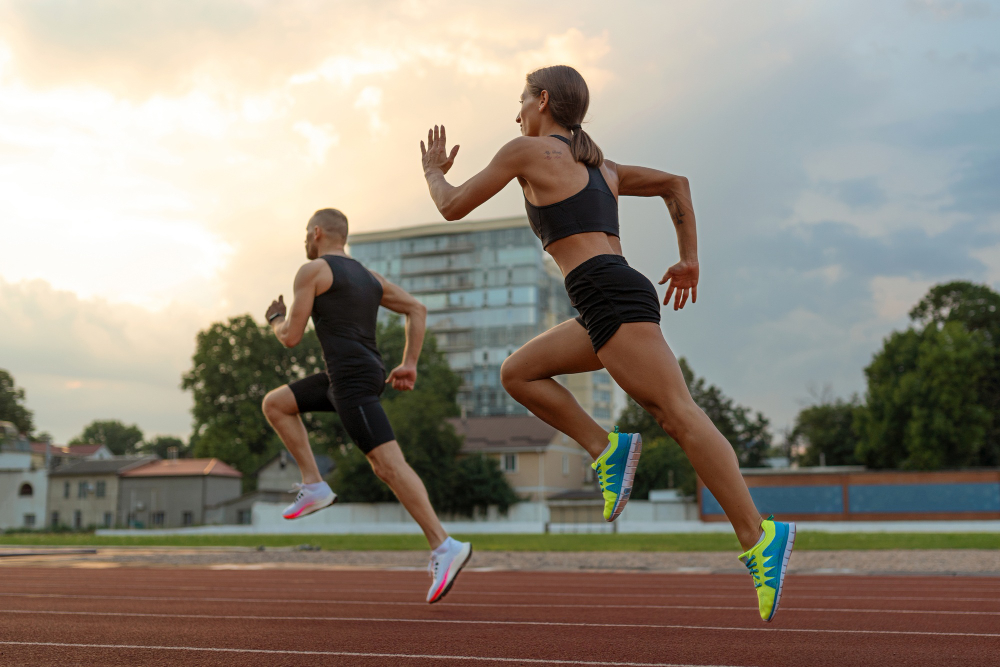How to Prevent Cramps During Running

Struggling with muscle cramps while running? You’re not alone. Cramping is a common issue among runners, both beginners and seasoned athletes. Whether you're preparing for a casual morning jog or an intense training session, cramps can disrupt your routine, hinder your performance, and even cause long-term discomfort if left unaddressed.
The good news? With the right knowledge and preparation, you can minimize and even prevent cramps altogether. This guide will explore the causes of muscle cramps, actionable strategies to prevent them, and how professional physiotherapy can help you keep running pain-free.
If you need personalized physiotherapy in Winter Springs, FL, to address running-related issues, you'll find this blog especially useful.
What Causes Cramps During Running?
To prevent cramps, it helps to first understand why they happen in the first place. Muscle cramps during running typically result from a combination of factors, including the following:
- Dehydration
Running depletes your body of fluids and electrolytes through sweat. When these levels drop too low, it can disrupt the balance of minerals like sodium, potassium, and magnesium, causing muscles to cramp.
- Overexertion
Pushing your muscles too hard, whether through high-intensity or long-distance running, can fatigue them. Fatigued muscles are more prone to cramping, particularly if proper recovery hasn’t been prioritized.
- Improper Warm-Up
Skipping warm-up exercises before starting your run can increase your risk of cramping. Properly preparing your muscles reduces the likelihood of sudden spasms and injuries.
- Nutrient Deficiencies
A lack of essential nutrients, such as magnesium and potassium, can impact muscle function and increase the risk of cramps during physical activities like running.
- Poor Running Form
An unhealthy or inefficient running gait can overstress certain muscles, leading to cramps. A professional gait analysis from a physiotherapist might be needed if this is a recurring issue.
Proven Strategies to Prevent Running Cramps
1. Stay Hydrated
Hydration is your first line of defense against cramps. Before your run, drink enough water to ensure your body is adequately hydrated. For longer runs, consider drinks that replenish electrolytes, such as sports drinks or coconut water.
Pro Tip: Start hydrating several hours before your run rather than drinking a large amount immediately beforehand, as this can cause bloating or discomfort.
2. Warm Up Properly
Warming up is vital to preparing your muscles for the rigors of running. Include dynamic stretches like leg swings, walking lunges, and high knees to engage key muscle groups.
A thorough warm-up boosts blood flow, increases flexibility, and reduces the likelihood of sudden spasms. Follow the warm-up with a light jog to ensure your muscles are ready to perform.
3. Pace Yourself
If you're new to running or increasing your mileage, do so gradually. Overexerting yourself by running too fast or long can strain your muscles, making them prone to cramping.
Adopt a training plan that allows for progressive overload, gradually increasing intensity and distance while giving your muscles time to adapt and recover.
4. Eat for Muscle Health
A balanced diet rich in essential nutrients can help keep cramps at bay. Potassium, magnesium, calcium, and sodium are particularly important.
Here are some foods to incorporate into your diet:
- Potassium: Bananas, oranges, potatoes
- Magnesium: Spinach, almonds, avocado
- Calcium: Milk, yogurt, leafy greens
- Sodium (for runners): Add light salt to meals if you sweat excessively
Aim to consume a small, nutrient-rich meal or snack about 2 hours before running to fuel your body without causing stomach discomfort.
5. Focus on Your Running Form
Efficient running mechanics reduce unnecessary stress on your muscles. If you’re experiencing consistent cramping in the same area, improper biomechanics might be to blame.
Enlisting the help of a physiotherapist can help analyze your running form. They might recommend adjustments, specific drills, or custom insoles to improve muscle engagement and reduce strain.
6. Regular Stretching and Strengthening
Improving your muscle flexibility and strength can lower your risk of cramps. Develop a post-run stretching routine targeting your calves, quads, hamstrings, and hip flexors.
Additionally, incorporate cross-training exercises like cycling or swimming and strength-training sessions focusing on your lower body to build endurance in your muscles.
How Physiotherapy Can Help
If you’ve tried these preventative strategies and still experience persistent cramps, it might be time to consult a physiotherapist.
A physiotherapist can:
- Identify Root Causes: Through gait analysis and movement assessments, they can pinpoint inefficiencies in your running technique or muscle imbalances.
- Create Custom Treatment Plans: A personalized approach involving manual therapy, targeted exercises, or even dry needling can address cramping issues effectively.
- Provide Recovery & Maintenance Tips: Learn the best recovery practices to reduce muscle fatigue and prevent long-term damage.
For runners in Winter Springs, FL, seeking expert physiotherapy, B Physical Therapy is here to guide you. Our specialized team works with athletes of all levels to eliminate discomfort and optimize performance.
When to Seek Professional Help
While occasional cramps can often be addressed through self-care, recurring or severe cramps may indicate a deeper issue. Seek professional help if you notice:
- Persistent pain even after resting and hydrating
- Cramps that disrupt your ability to run consistently
- Swelling or redness in the affected area
Run Without Limits
Running cramps don’t have to hold you back. By understanding their causes and taking proactive steps like hydrating, warming up, and maintaining proper form, you can reduce your risk and enjoy smoother, more comfortable runs.
However, if cramps persist or you want professional support to enhance your running experience, B Physical Therapy is here to help.
If you're in Winter Springs, FL, contact B Physical Therapy today to schedule an appointment. Let's keep you running strong!